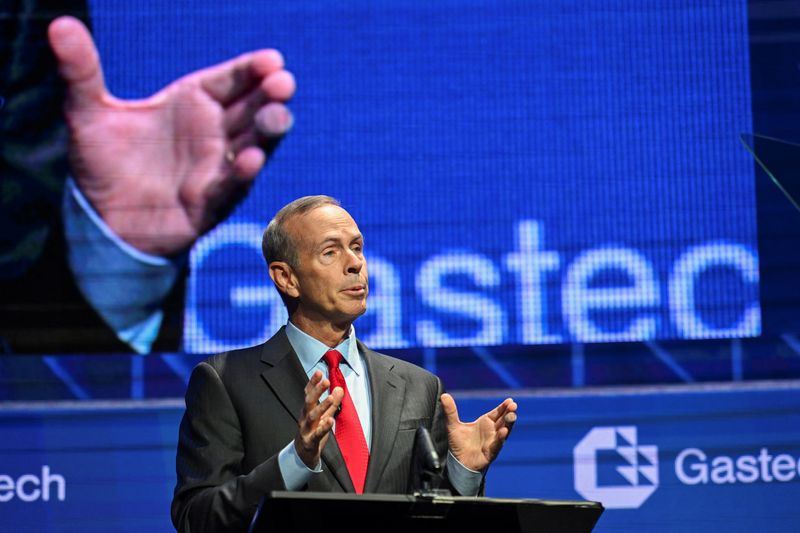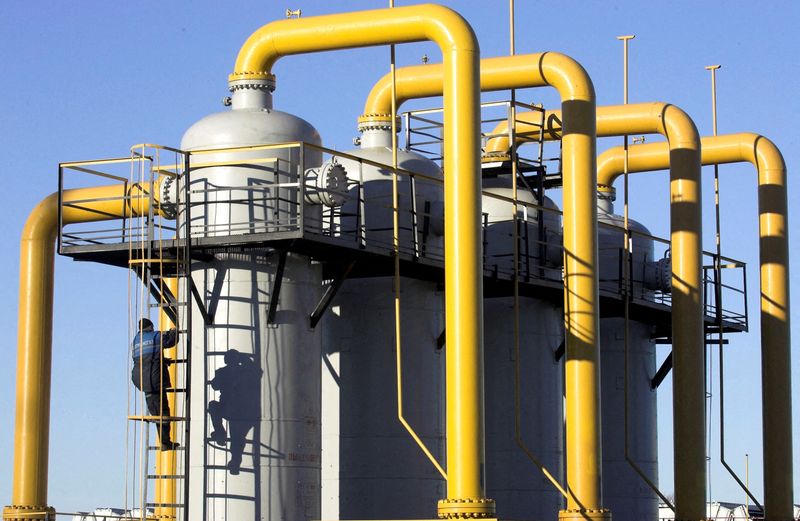By Sabrina Valle
HOUSTON (Reuters) – Chevron CEO Michael Wirth on Tuesday criticized U.S. President Joe Biden’s administration for what he described as “attacks on the natural gas industry” and highlighted Permian’s crucial role in driving the rapid growth of artificial intelligence (AI ).
The CEO’s comments followed new government plans on policies to prevent power-hungry AI data centers from undermining U.S. climate goals. Last week, the White House launched a task force on AI data center infrastructure to coordinate policy in line with the administration’s economic and environmental goals.
Wirth defended the use of low-carbon gas instead of coal to meet the AI sector’s increasing energy demands.
“The advancement of AI will depend not only on the design labs of Silicon Valley, but also on the gas fields of the Permian Basin,” Wirth said at the Gastech conference in Houston.
Chevron (NYSE:), the US’s second-largest oil producer, is one of the top players in the Permian Basin spanning Texas and New Mexico. The Permian is the largest U.S. oil field and accounts for 15% of the country’s gas production.
Wirth said the Biden administration’s approach to pausing liquefied natural gas (LNG) exports “elevates politics over progress.”
In January, Biden announced the pause on approvals for current and future applications to export LNG from new projects, a move welcomed by climate activists and which could delay decisions on new plants until after the Nov. 5 election.
He argued that a moratorium on LNG exports would raise energy costs, jeopardize reliable supplies and slow the transition from coal to natural gas, leading to more emissions instead of fewer.
“Instead of imposing a moratorium on LNG exports, the government should stop attacks on natural gas,” he added.
Wirth underscored the role of gas in reducing global carbon emissions, citing International Energy Agency (IEA) data that attributes more than a third of total global greenhouse gas emissions in 2022 to coal combustion.
The switch from coal to gas, he suggested, could be “the largest carbon reduction initiative in history.”
“The case for natural gas is so strong that only politics can stand in the way,” he said.

Amid the global drive to decarbonize, Wirth emphasized the need for a stable and predictable policy environment to ensure gas remains a reliable energy source.
He outlined three pillars for a balanced energy future: political support for gas as the key to a lower carbon future; recognition of the progress made in deploying new technologies and gas solutions; and the realization that the energy transition requires unprecedented innovation and collaboration.


